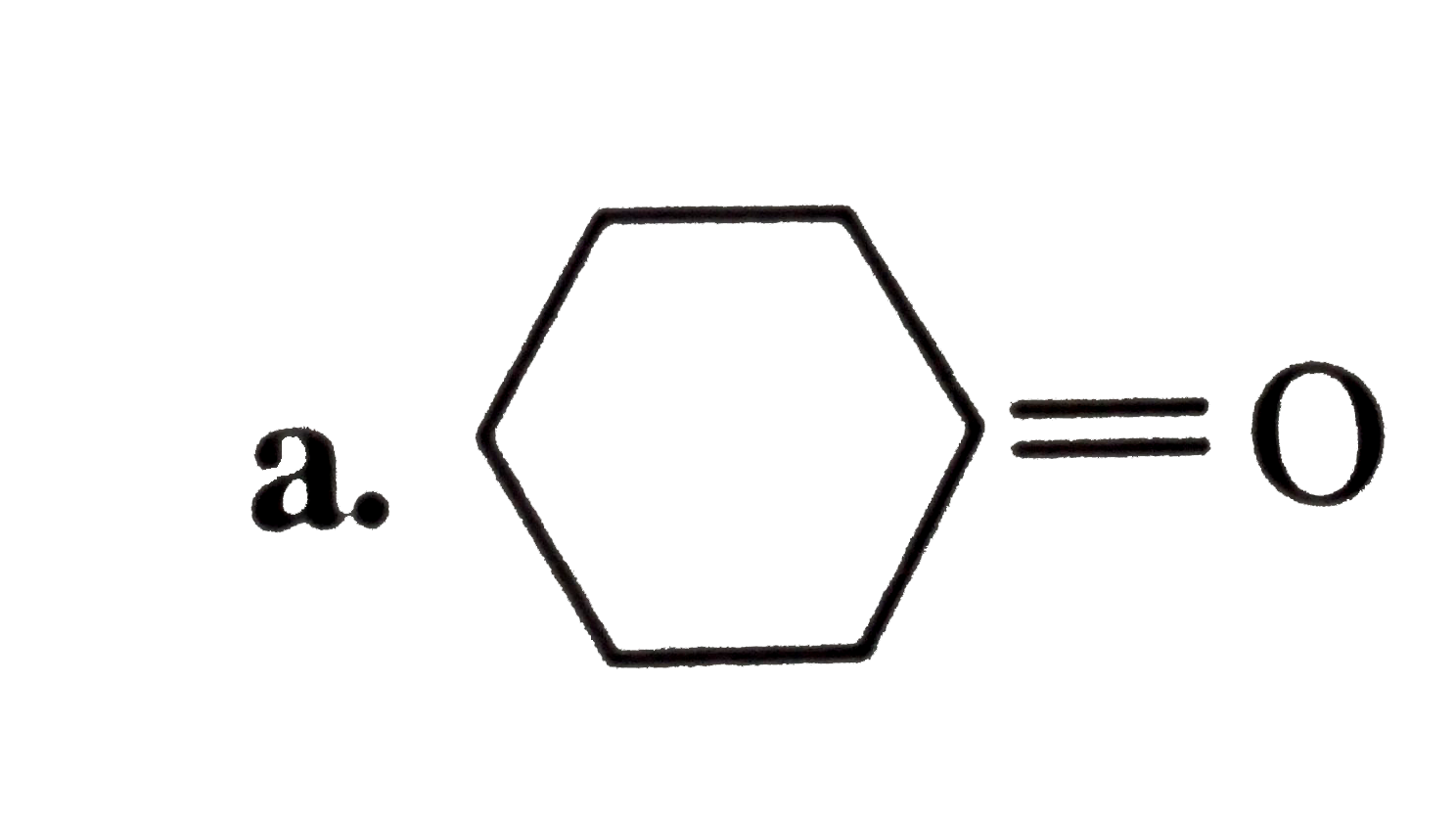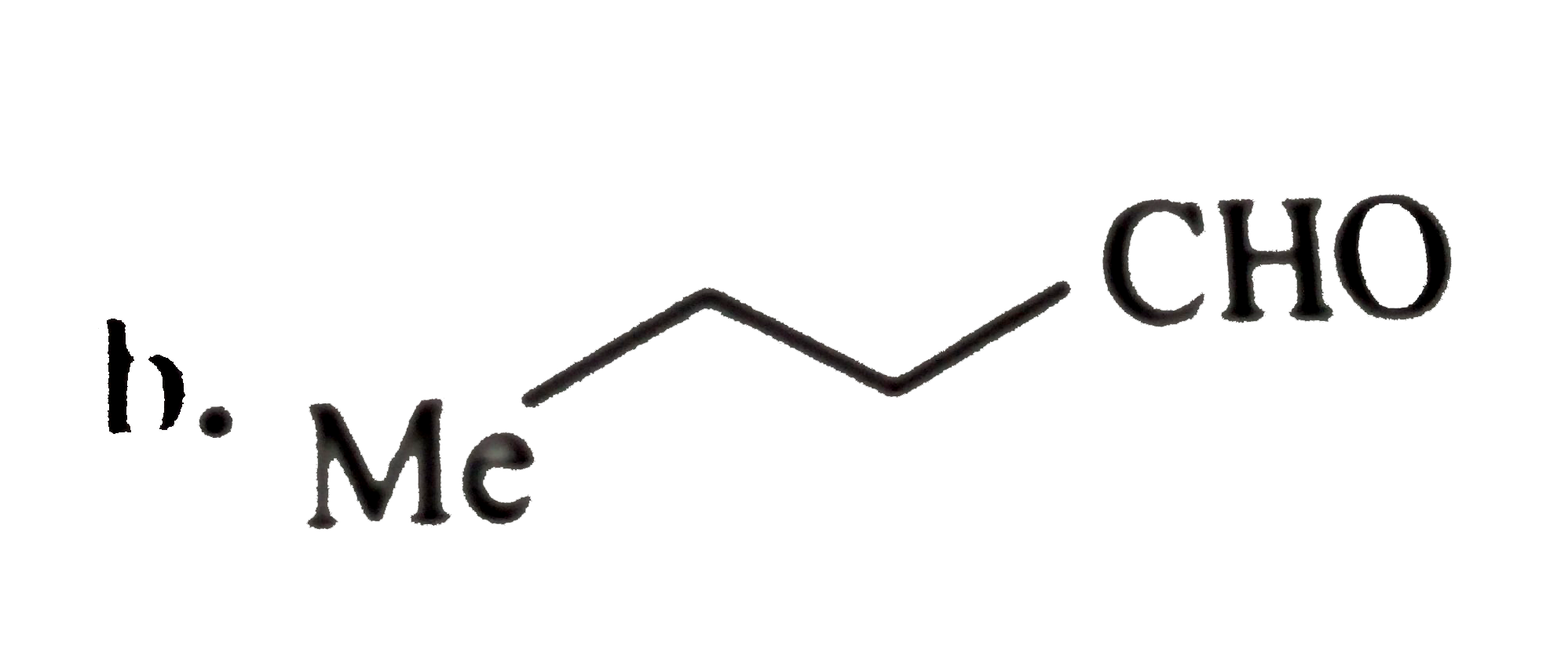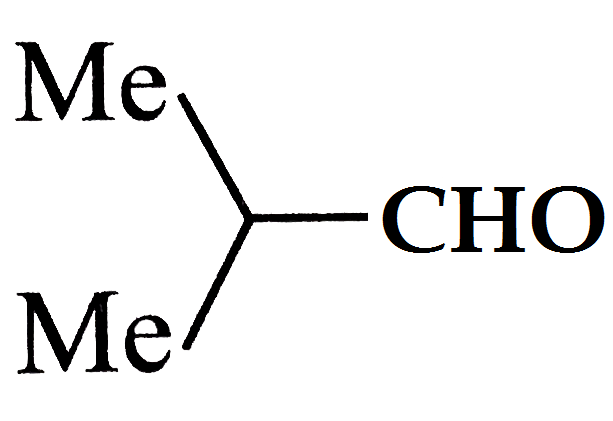Which of the following will undergo aldol condensation?
CH2=CHCHO
CH≡CCHO
C6H5CHO
CH3CH2CHO?
The correct Answer is:D
To determine which of the given compounds will undergo aldol condensation, we must first understand the requirements for this reaction. Aldol condensation typically occurs when a compound has at least one alpha-hydrogen adjacent to a carbonyl group (aldehyde or ketone). The presence of alpha-hydrogens allows for the formation of an enolate ion, which is crucial for the aldol reaction.
1. Identify the Compounds: List the compounds provided in the question. For this example, let's assume the options are:
- A) CH2=CHCHO (Acrolein)
- B) CH≡CCHO (Propyne)
- C) C6H5CHO (Benzaldehyde)
- D) C6H3CH2CHO (Substituted benzaldehyde)
2. Check for Alpha-Hydrogens:
- Option A (CH2=CHCHO): This compound has alpha-hydrogens on the carbon adjacent to the carbonyl (CHO) group. Therefore, it can undergo aldol condensation.
- Option B (CH≡CCHO): This compound also has alpha-hydrogens on the carbon adjacent to the carbonyl group. Thus, it can also undergo aldol condensation.
- Option C (C6H5CHO): Benzaldehyde has no alpha-hydrogens because the carbon adjacent to the carbonyl is part of the phenyl ring. Therefore, it cannot undergo aldol condensation.
- Option D (C6H3CH2CHO): This compound has alpha-hydrogens on the carbon adjacent to the carbonyl group, allowing it to undergo aldol condensation.
3. Conclusion: The compounds that can undergo aldol condensation are:
- A) CH2=CHCHO (Acrolein)
- B) CH≡CCHO (Propyne)
- D) C6H3CH2CHO (Substituted benzaldehyde)
Final Answer:
The compounds that will undergo aldol condensation are:
- A) CH2=CHCHO
- B) CH≡CCHO
- D) C6H3CH2CHO
- A) CH2=CHCHO (Acrolein)
- B) CH≡CCHO (Propyne)
- C) C6H5CHO (Benzaldehyde)
- D) C6H3CH2CHO (Substituted benzaldehyde)
- Option A (CH2=CHCHO): This compound has alpha-hydrogens on the carbon adjacent to the carbonyl (CHO) group. Therefore, it can undergo aldol condensation.
- Option B (CH≡CCHO): This compound also has alpha-hydrogens on the carbon adjacent to the carbonyl group. Thus, it can also undergo aldol condensation.
- Option C (C6H5CHO): Benzaldehyde has no alpha-hydrogens because the carbon adjacent to the carbonyl is part of the phenyl ring. Therefore, it cannot undergo aldol condensation.
- Option D (C6H3CH2CHO): This compound has alpha-hydrogens on the carbon adjacent to the carbonyl group, allowing it to undergo aldol condensation.
- A) CH2=CHCHO (Acrolein)
- B) CH≡CCHO (Propyne)
- D) C6H3CH2CHO (Substituted benzaldehyde)
The compounds that will undergo aldol condensation are:
- A) CH2=CHCHO
- B) CH≡CCHO
- D) C6H3CH2CHO
Topper's Solved these Questions
- BOOK - DINESH PUBLICATIONCHAPTER - ALDEHYDES AND KETONES EXERCISE - Select the correct answer44videos
ALDEHYDES AND KETONES
- BOOK - DINESH PUBLICATIONCHAPTER - ALDEHYDES AND KETONES EXERCISE - Comprehension I3videos
ALDEHYDES AND KETONES
- BOOK - DINESH PUBLICATIONCHAPTER - ALDEHYDES AND KETONES EXERCISE - Properties of Carbon33videos
ALDEHYDES AND KETONES
- BOOK - DINESH PUBLICATIONCHAPTER - ALCOHOLS AND PHENOLSEXERCISE - Matrix9videos
ALCOHOLS AND PHENOLS
- BOOK - DINESH PUBLICATIONCHAPTER - ALKALI EARTH METALSEXERCISE - Unit test-125videos
ALKALI EARTH METALS
Similar Questions
Knowledge Check
- Question 1 - Select One or More
Which of the following will undergo aldol conddensation
AAcetaldehydeBpropanaldehydeCbenzaldehydeDtrideutroactaldehyde - Question 2 - Select One
Which of the following would undergo aldol condensation ?
ACCl3CHOBH3C−CH3∣C∣CH3−CHOCCH3CH2CHODHCHO - Question 3 - Select One or More
Which of the following would undergo Aldol condensation ?
A B
B C
C D
D
Which of the following will not undergo aldol condensation?
View SolutionWhich of the following will not undergo aldol condensation?
View SolutionWhich of the following will not undergo aldol condensation?
View SolutionWhich of the following will not undergo aldol condensation-
View SolutionWhich of the following will not undergo aldol condensation ?
View Solution

